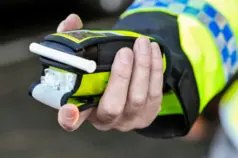
Stemming from a piece of American research in 2016, online forums and social media groups began to hum with posts wondering if the small amount of alcohol compounds contained within e-liquid could come into play when giving a sample of breath to the police. Popular urban myth grew up to say that electronic cigarettes can cause a breathalyser test fail, but is there scientific evidence to support this belief?
When vaping began to take off over a decade ago, most e-liquid consumed was made by the vapers themselves. One way to compensate for the poor quality of atomisers at the time, e-cig users would sometimes add a small volume of vodka to the juice in order to produce a kick to the throat upon inhale. This would be 10% of the volume or less.
This practice fell by the wayside as modern, legal mass-produced e-liquids became plentiful and easily available – and devices improved in the way they produce vapour and flavour.
A substance called ethanol (an alcohol) is still added to a small number of e-liquid brands as a flavour enhancer. The amount added is very small, typically 0.1% of total volume or less.
Also, propylene glycol (PG), typically 30-70% of an e-liquid is classified as an alcohol but does not produce the effects of drinking booze. It is something the World Health Organisation deems to be safe to ingest at levels of 25 milligrams per kilogram of body weight – something far more than the levels found in e-liquids, but as the juice is heated by the coil, a small amount of the propylene glycol is converted into ethanol and contained within the vapour.
So, it seems reasonable to assume that this might have an impact when it is breathed in. It is understandable where the rumours come from.
Researchers at the Virginia Commonwealth University have recently published a paper where they looked at whether vaping can impact on a breathalyser test reading.
To investigate it, the team asked subject to vape e-liquids containing a concentration of 20% ethanol or a concentration of 0% ethanol. Being in America, they then assessed the impact on the subjects using breath tests on a machine and their standardised field sobriety test.
The standardised field sobriety test entails looking at an object as it is moved in front of the eyes, walking heel-to-toe in a straight line, and standing on one foot without falling over.
“The researchers found that vaping ethanol did not impact the standardised field sobriety test, and the evidentiary breath test was not affected by vaping ethanol at all,” the Virginia Commonwealth University said.
“We’re reporting negative results and we’re thrilled about that,” said the lead author. “We needed to get that into the literature because there are attorneys who are trying to use vaping as a reason to get somebody out of a DUI [drink driving] charge. What we’re now able to say is vaping does not impact the preliminary breath test.”
So, despite rumours to the contrary, it looks like you are completely safe to vape and drive.
